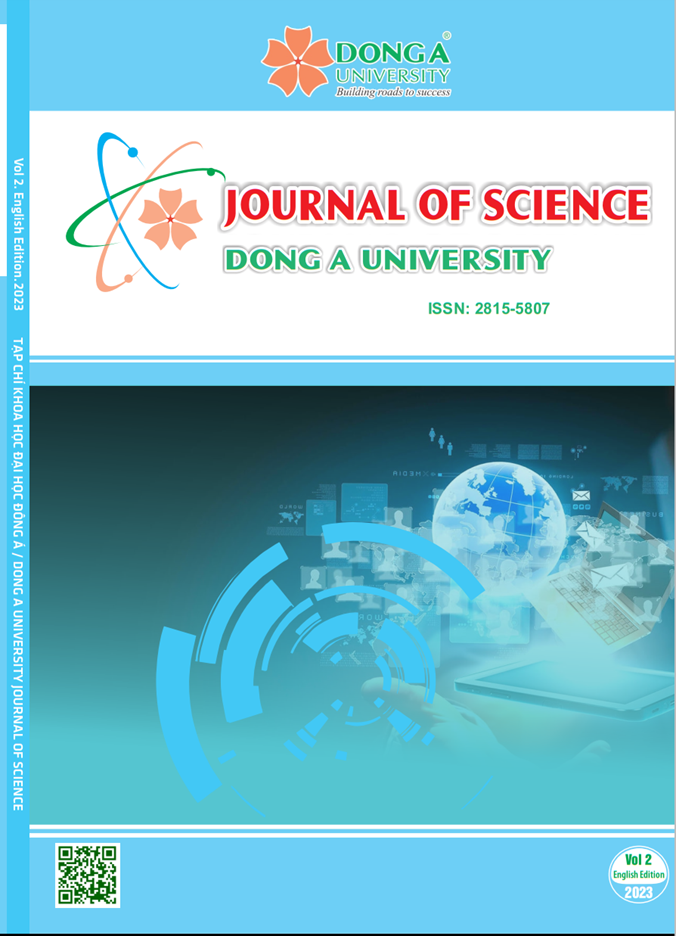Effect of Credit Access on Innovation Activities in Smes: a Mediating Role of Bribery and Bargaining Power
Nội dung chính của bài viết
Tóm tắt
The paper uses data from 104 developing countries varying from 2010 to 2019 period to examine the effect of credit access on firm innovation. The paper first regressed the model with full sample, then with sub-sample by size, legality and bribery to check the moderation effect of bargaining power and bribery. The findings of the regression analysis demonstrate a favorable relationship between corporate innovation and loan access. For companies with higher negotiating strength (proxies by firm size and legality), this effect becomes more significant. However, the influence of financial availability on corporate innovation is likely to be hampered by the perception of bribery. Finally, the paper brought some policy implications to the paper, especially for developing countries.
Chi tiết bài viết
Từ khóa
Credit access, innovation, bargaining power, bribery
Tài liệu tham khảo
Ajayi, O. M., & Morton, S. C. (2015). Exploring the enablers of organizational and marketing innovations in SMEs: Findings from south-western Nigeria. SAGE Open, 5(1)
Amit, R., & Schoemaker, P. J. H. (1993). Strategic assets and organizational rent. Strategic Management Journal, 14(1), 33–46
Anokhin, S., & Schulze, W. S. (2009). Entrepreneurship, innovation, and corruption. Journal of Business Venturing, 24(5), 465–476
Ayyagari, M., Demirgüc-Kunt, A., Maksimovic, V., 2011. Firm innovation in emerging markets: the role of finance, governance, and competition. J. Financ. Quant. Anal. 46 (6), 1545–1580"
Cuerva, M.C., Triguero-Cano, A., Corcoles, D., 2014. Drivers of green and non-green innovation: empirical evidence in low-tech SMEs. J. Clean. Prod. 68, 104–113
Eisenhardt, K. M., & Tabrizi, B. N. (1995). Accelerating adaptive processes: Product innovation in the global computer industry. Administrative Science Quarterly, 40(1), 84–110
Fajnzylber, P., Maloney, W. F., & Montes-Rojas, G. V. (2011). Does formality improve micro-firm performance? Evidence from the Brazilian SIMPLES program. Journal of Development Economics, 94(2), 262–276
Galbraith, J. K. (1956). American Capitalism. Revised edition, Houghton Mifflin, Boston
Gauthier, B., & Goyette, J. (2014). Taxation and corruption: Theory and firm-level evidence from Uganda. Applied Economics, 46(23), 2755–2765
Goedhuys, M., Mohnen, P., & Taha, T. (2016). Corruption, innovation and firm growth: Firm-level evidence from Egypt and Tunisia. Eurasian Business Review, 6(3), 299–322.
Guriev, S. (2004). Red tape and corruption. Journal of Development Economics, 73(2), 489–504.
Ha, L.T., Le, D.H. & Mai, N.N. (2021). Bribes, market power and access to credit: evidence from cross-country firm-level data. Int Rev Econ 68, 527–550
Ha.T.L. & Le D.H (2021). Relationship between Bribery and Export Decisions in Vietnam: The moderating roles of Bargaining power and Institutional constraints. Journal of International Economics and Management (Vietnamese version), 136, pp. 1 – 26
Kamasak, R. (2015). Determinants of innovation Performance: A Resource-based Study. Procedia - Social and Behavioral Sciences, 195, 1330–1337
Kaufmann, D., & Wei, S.J. (1999). Does “Grease Money” Speed Up the Wheels of Commerce? (NBER Working Papers No. 7093). Retrieved from National Bureau of Economic Research
Kortum, S., Lerner, J., 2000. Assessing the contribution of venture capital to innovation. RAND J. Econ. 31 (2000), 674–692
Mahagaonkar, P. (2008). Corruption and innovation: A grease or sand relationship? Jena Economic Research Papers no. 2008-17
Meyer, J.W., Rowan, B. (1977). Institutionalized organizations: formal structure as myth and ceremony. American Journal of Sociology, 83(2), 340–363
Myers, S. C. (1984). The capital structure puzzle. The Journal of Finance, 39(3), 574–592
Myers, S. C., & Majluf, N. S. (1984). Corporate financing and investment decisions when firms have information that investors do not have. Journal of Financial Economics, 13(2), 187–221.
Myrdal, G. (1968). Asian drama: An enquiry into the poverty of nations. Vol. 2. New York: The Twentieth Century Fund. Reprint in A.J. Heidenheimer, M. Johnston and V.T. LeVine (Eds.), Political corruption: A handbook, pp. 953–961, 1989. Oxford: Transaction Books
Pagano, M. (Ed.). (2001). Defusing Default, Incentives and Institutions. IDB and OECD, John Hopkins University Press, Washington, DC
Palacios, D., Gil, I., & Garrigos, F. (2009). The impact of knowledge management on innovation and entrepreneurship in the biotechnology and telecommunications industries. Small Business Economics, 32, 291–301
Qi, S., & Ongena, S. (2020). Fuel the Engine: Bank Credit and Firm Innovation. Journal of Financial Services Research, 57(2), 115–147
Robb, A.M., Robinson, D.T., 2012. The capital structure decisions of new firms. Rev. Financ. Stud. 27 (1), 153–179
Rose-Ackerman, S. (1998). Corruption and development, B. Pleskovic and J. Stiglitz (eds.). Annual World Bank Conference on Development Economics 1997, World Bank, Washington DC, pp. 35–58
Scherer, F. M. (1980). Industrial Market Structure and Economic Performance. Second edition, Rand McNally, Chicago.
Schumpeter, J. A. (1934). The theory of economic development (2nd ed.). Cambridge, MA: Harvard University Press
Solow, R.M., 1957. Technical change and the aggregate production function. Rev. Econ. Stat., 312–320
Terziovski, M. (2010). Innovation practice and its performance implications in small and medium enterprises (SMEs) in the manufacturing sector: A resource-based view. Strategic Management Journal, 31, 892–902
Ullah, B. (2019). Firm innovation in transition economies: The role of formal versus informal finance. Journal of Multinational Financial Management, 50, 58–75
Ullah, B., Wei, Z., 2017. Bank financing and firm growth: evidence from transition economies. J. Financ. Res. 40 (4), 507–534
Wellalage, N. H., & Locke, S. (2020). Formal credit and innovation: Is there a uniform relationship across types of innovation? International Review of Economics & Finance, 70, 1–15
Zhou, J.Q., Peng, M.W., 2012. Does bribery help or hurt firm growth around the world? Asia Pac. J. Manag. 29 (4), 907–921


